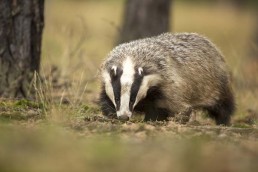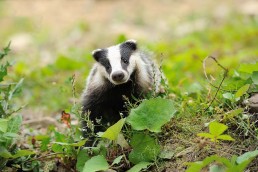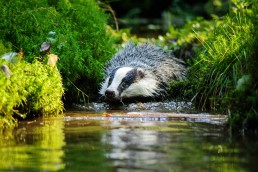Our story
The West Kent Badger Group (WKBG) is a registered charity dedicated to protecting and promoting badger welfare in West Kent. Our group of volunteers are involved in a variety of activities, with over 150 members through out the West Kent area extending into South East London.
Give badgers a break!
Please drive slowly on country roads at night. You may well save the life of a badger (and other creatures). This is especially important at this time of year when cubs are being born. If you see a road traffic accident victim and can stop, please check if it is actually dead - and if not - contact someone for help - and if it is a lactating female, let us know the location in case there are local volunteers near who can search for wandering orphaned cubs.
The body weight of adult badgers is variable and can depend on several factors; the differing seasons, the area in which they live, the amount of food available and their age.
Carry on scrolling for more badger facts.
Facts



